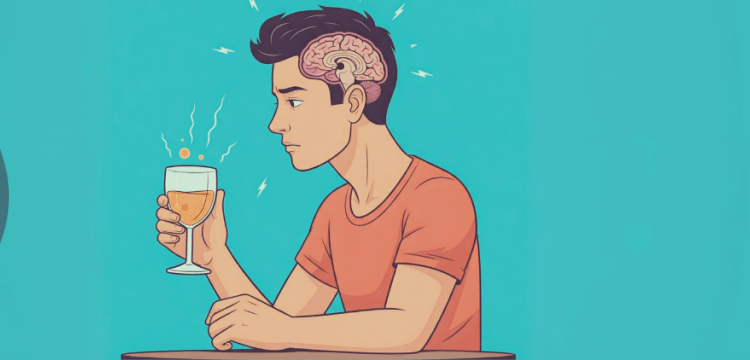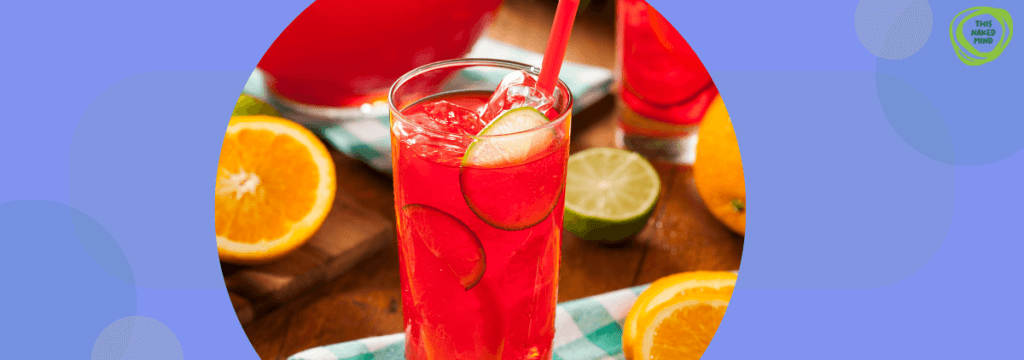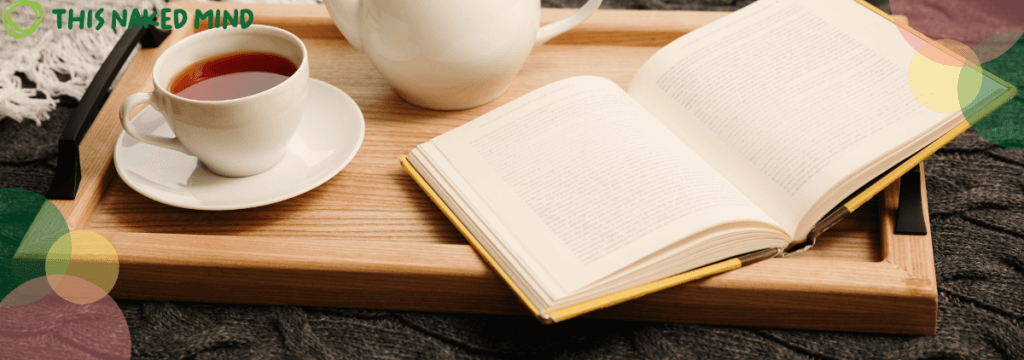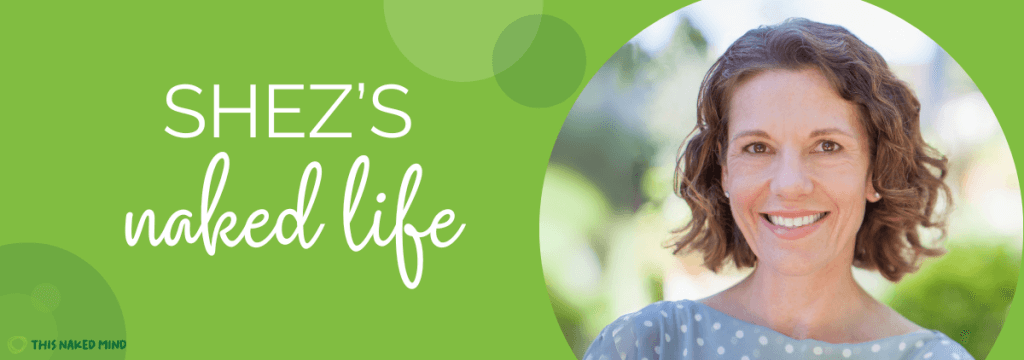
How Alcohol Affects Your Brain: The Science of Sobriety
Alcohol is one of the most widely consumed substances globally, but its effects on the brain are often underestimated. Understanding how alcohol affects your brain—and the benefits of sobriety—can be a game changer for anyone questioning their relationship with alcohol.

We all know alcohol can make us feel good in the moment, right? But what if I told you that over time, it can actually shrink parts of your brain? It’s true! And that’s just the tip of the iceberg. Alcohol messes with our brain‘s delicate balance in ways we often don’t realize.
The good news is that our brains are incredibly resilient. By understanding the science behind alcohol’s effects, we can make informed choices to support our brain health and unlock our full potential. And guess what? Choosing to live alcohol-free is the key to unlocking that potential.
Let’s get into the science of how alcohol affects the brain long-term and explore the incredible benefits of going alcohol-free for brain function.
Start Learning
- How Alcohol Affects the Brain
- Benefits of Sobriety for Brain Health
- Brain Healing and Neuroplasticity
- 10 More Things You Should Know About Alcohol and Your Brain
How Alcohol Affects the Brain
Ready to join the forever-free Alcohol Experiment Annie mentions in the video? Click below to get started!
How Alcohol Messes with Your Brain’s Chemistry
Alcohol might not dress in black and sneak around like a cat burglar but it sure does a bang-up job of infiltrating our brain chemistry! Right off the bat alcohol disrupts the natural balance of our brain’s chemical messengers, called neurotransmitters. These little guys are responsible for everything from our mood to our sleep.
One of these neurotransmitters is called GABA. Alcohol makes GABA even more active, which is why we might feel relaxed or even sleepy after a drink or two. But this extra GABA activity can also make it hard to think clearly and react quickly.
Another important neurotransmitter is glutamate. Alcohol actually blocks glutamate, which can lead to problems with learning and memory. Think of glutamate as the brain’s “on” switch, and alcohol is like dimming the lights.
And then there’s dopamine, the “feel-good” neurotransmitter. Alcohol triggers a surge of dopamine, making us feel happy and rewarded. But over time, our brains get used to this extra dopamine, and we need more and more alcohol to get the same effect. This is how addiction can take hold. Most of us learn that once we’ve desensitized ourselves to the rush of dopamine, we can never feel as good no matter how much we drink.
Finally, alcohol affects serotonin levels, which help regulate our mood and sleep. When serotonin levels are out of whack, we might feel more anxious, depressed, or have trouble sleeping.
Researchers have been taking a hard look at the impact alcohol has on these neurotransmitters. A study in Nature looked at how alcohol use disorder (AUD) changes the brain at a genetic level. Scientists compared brain tissue samples from people with AUD to those without, as well as from animals exposed to alcohol. They found that alcohol use can change how certain genes in the brain work, especially genes linked to the chemicals that help brain cells talk to each other (neurotransmitters). These changes may explain why some people with AUD have difficulty stopping drinking—it’s like their brains adapt to alcohol in a way that makes them rely on it.
Alcohol Can Actually Change Your Brain’s Structure
It’s not just about the chemicals. Alcohol can actually change the physical structure of our brains. Over time, heavy drinking can damage brain cells and even shrink brain volume, especially in areas responsible for memory, learning, and decision-making.
Think of your brain like a complex network of roads. Alcohol is like construction that blocks off some roads and makes it harder for different parts of the brain to communicate with each other. This can lead to all sorts of problems, like difficulty concentrating, making decisions, and controlling impulses.
The Foggy Brain Blues
Have you ever experienced “brain fog” after a night of drinking? That’s alcohol interfering with your cognitive abilities. Here’s what happens:
- Memory Problems: Alcohol affects short-term memory and impairs the ability to form new memories.
- Difficulty Concentrating: Drinking disrupts focus and mental clarity, making even simple tasks feel overwhelming.
- Impaired Judgment: Alcohol lowers inhibition and decision-making skills, often leading to risky behavior.
Mental Health Impacts
Alcohol and mental health are deeply intertwined. The more and longer we drink the deeper the problems get including:
- Anxiety and Depression: While alcohol may temporarily numb emotions, it ultimately worsens anxiety and depression by disrupting neurotransmitter balance.
- Increased Risk of Mental Illness: Regular drinking raises the likelihood of developing mental health disorders.
- Emotional Dysregulation: Alcohol interferes with the brain’s ability to process emotions, leading to irritability and mood swings.
Benefits of Sobriety for Brain Health
Sobriety isn’t just about cutting out alcohol—it’s about giving your brain the chance to heal, grow, and thrive. The good news? Your brain has a remarkable ability to repair itself, thanks to neuroplasticity, which is the process of forming new neural connections throughout life. Here’s what happens when you say goodbye to alcohol:

Brain Healing and Neuroplasticity
When you stop drinking, your brain begins to heal in incredible ways:
- Rebuilding Brain Cells: Research shows that abstinence promotes neurogenesis—the growth of new brain cells—especially in the hippocampus, the region responsible for learning and memory.
- Reduced Inflammation: Alcohol increases inflammation in the brain, but sobriety allows this to subside, helping to restore cognitive function.
- Improved Connectivity: As damaged areas repair themselves, communication between different parts of the brain strengthens, enhancing overall mental performance.
A 2013 review published in Brain Research by Zahr and colleagues analyzed multiple neuroimaging studies and revealed compelling evidence of the brain’s ability to recover after quitting alcohol. The study found significant structural and functional improvements in the hippocampus and frontal cortex—areas critical for memory, learning, decision-making, and impulse control. These changes were linked to noticeable boosts in cognitive abilities and emotional regulation.
Cognitive Enhancement
Sobriety clears the mental fog, allowing your brain to function at its best:
- Better Memory: The hippocampus begins to recover, improving both short- and long-term memory.
- Sharper Focus: Without alcohol interfering, your attention span and concentration improve significantly.
- Enhanced Problem-Solving: Executive functions like planning and decision-making return, leaving you feeling more capable and in control.

Mood Regulation
When you quit drinking, your brain’s neurotransmitter balance starts to normalize, which has a profound effect on emotional well-being:
- Emotional Stability: As serotonin levels stabilize, mood swings and irritability decrease.
- Reduced Anxiety: Alcohol disrupts the brain’s natural calming mechanisms, but sobriety lets them function properly again.
- Improved Resilience: With a balanced brain, you’re better equipped to handle life’s challenges.
Sleep Improvement
While alcohol might make you feel drowsy, it disrupts deep sleep stages that are essential for brain health:
- Restorative Sleep: Sobriety allows your body to achieve REM sleep, which is crucial for memory consolidation and emotional regulation.
- Increased Energy: With quality sleep, you wake up refreshed and ready to tackle the day.
Sobriety Supercharges Your Brain
Quitting alcohol is like hitting the reset button on your brain. The fog lifts, your thoughts sharpen, and your mood stabilizes. It’s a chance to unlock your full potential, feel more energized, and reconnect with your best self. Sobriety isn’t just about avoiding alcohol—it’s about rediscovering what your brain can do when it’s at its healthiest.
Why not give your brain the fresh start it deserves? The benefits are truly life-changing.
10 More Things You Should Know About Alcohol and Your Brain:
- GABA and Glutamate: Alcohol throws off the balance between these two important neurotransmitters, affecting everything from relaxation to learning.
- Dopamine and Reward: Alcohol hijacks the brain’s reward system, making us crave more and more.
- Serotonin and Mood: Alcohol disrupts serotonin levels, leading to mood swings and anxiety.
- Brain Damage: Alcohol can damage key areas of the brain, like the hippocampus (memory) and prefrontal cortex (decision-making).
- Neuroinflammation: Alcohol triggers inflammation in the brain, which can lead to cognitive decline.
- Blood-Brain Barrier: Alcohol can damage this protective barrier, allowing harmful substances to enter the brain.
- Neurogenesis: Sobriety can actually help your brain grow new brain cells!
- Sleep Architecture: Sobriety restores healthy sleep patterns, including REM sleep, which is crucial for memory and emotional processing.
- Gut-Brain Axis: Your gut and brain are connected, and sobriety can improve the health of both.
- Long-Term Benefits: The longer you’re sober, the more your brain function improves.

The PATH to a Healthier Brain
If you’re reading this and thinking, “Wow, I really need to cut back on drinking,” you’re not alone. Millions of people struggle with alcohol, but there is hope.
If you’re ready to explore the benefits of sobriety, The PATH from This Naked Mind is an invaluable resource. Our program helps you understand your relationship with alcohol and equips you with tools to make sustainable changes.
Consider these findings from an internal survey of over 2,900 respondents:
- 90% decreased their drinking frequency or stopped drinking entirely.
- 86.5% noticed improved mental health.
- 70% attributed their transformation to The PATH.
This Naked Mind’s science-backed methodology empowers you to take control and experience freedom from alcohol—and your brain will thank you.

Remember, your brain is an amazing organ with the power to heal and thrive. By choosing a life without alcohol, you’re giving your brain the best chance to reach its full potential.
Final Thoughts on How Alcohol Affects Your Brain
Alcohol’s impact on the brain is profound, but the benefits of sobriety are even more remarkable. From reversing cognitive decline to restoring emotional balance, sobriety offers a path to a healthier, more vibrant life. If you’re curious about how alcohol affects the brain long-term or are ready to experience the benefits of living alcohol-free for brain function, know that healing is possible.
Take the first step toward reclaiming your brain health. Explore The PATH from This Naked Mind or join our community for support and encouragement. Your journey to a clearer, healthier mind starts today.
This blog post is intended for informational purposes only and does not provide medical advice. Please consult with a healthcare professional for any health concerns or before making any decisions related to your health or treatment.








